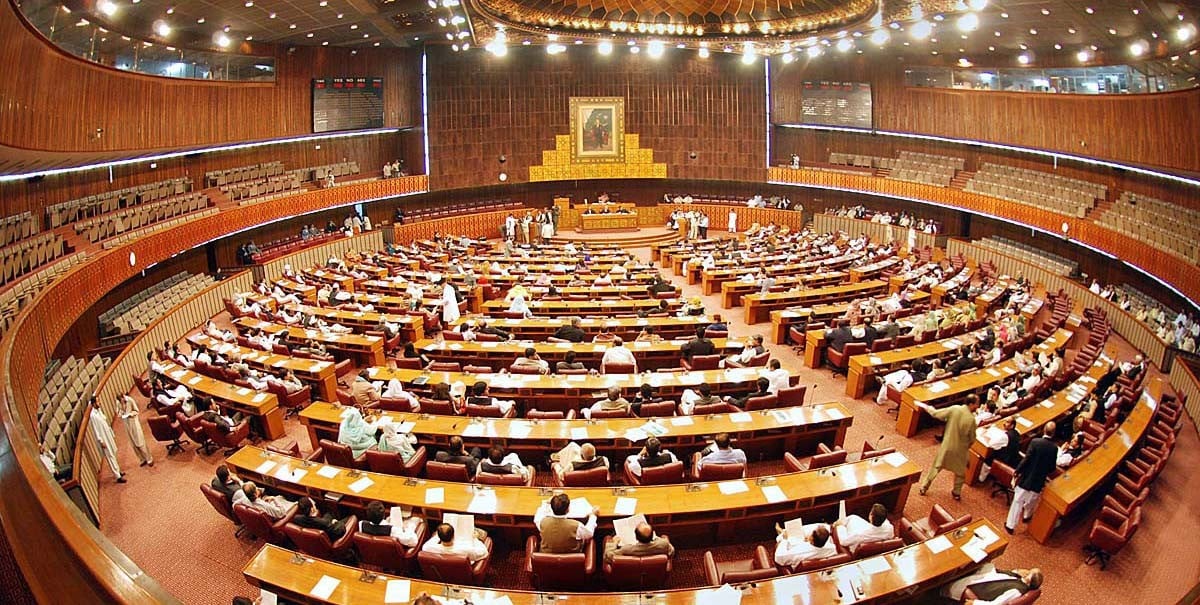
Parliament is a reflection of people’s will

The parliament has always remained at the centre of discussion: back in 1947 when the country was created by the votes of its elected assemblies; and today as we speak when protesters have staged a sit-in before the same parliament that they like to call ‘illegitimate’. The history in between these two significant events is checkered, to say the least, and has remained peculiarly unfavourable for parliaments.
It could be argued that in a democracy it is the constitution which is a document worth protecting. Everything flows out of that: democracy and its concomitant institutions, including the parliament.
Why then do we need to save our parliament and against whom? In short, why is parliamentary supremacy extremely important?
Prior to the creation of Pakistan, which, as said above, was effected by the direct votes of Punjab, Bengal, and Sindh assemblies, the freedom movement of India was shaped in its assemblies aided, of course, by some direct action methods. Yet, we in Pakistan have had to struggle for the supremacy of parliament for the longest of time. It was only in 1970 that the first elections were held in the country on the basis of universal suffrage. What had happened in the intervening years, from the country’s creation to its first election, led to the dismemberment of its Eastern wing.
Parliament is a reflection of people’s will; it’s an institution where representatives elected by the people sit and make decisions and govern on their behalf. In a parliamentary democracy, parliament is the key feature of the constitution. But in our country, there has been a quintessential tussle between the people’s will and those who wanted to impose a one man rule.
Parliamentary supremacy is an ideal worth pursuing because all three military dictatorships were effectively led by unelected presidents. Parliament as a symbol of legitimate self-rule is, therefore, doubly significant for us. Parliaments here have generally been absent or short-lived or acted as mere rubber stamps for the executive.
The reason why we have decided to put parliament at par with constitution is because in our peculiar history, the non-elected interregnums have ensured that the constitution contained within itself the seeds of undoing the parliaments -- in the form of absurd amendments like 58-2B. Therefore, at different times, the parliaments have suffered blows at the hands of unelected presidents on perfectly constitutional grounds. At other times, this role has been played by an overarching judiciary.
Parliament is important. It can and will ensure the devolution of power that this polity needs; it has already begun the process in the form of Eighteenth and Twentieth constitutional amendments. It is important because it contains within the principle of change of guard: people have the power to change the complexion of parliament each time. It can set right all wrongs, including electoral reform. It can make laws, change them and amend the constitution. Above all, it alone can ensure people’s right to self-government.